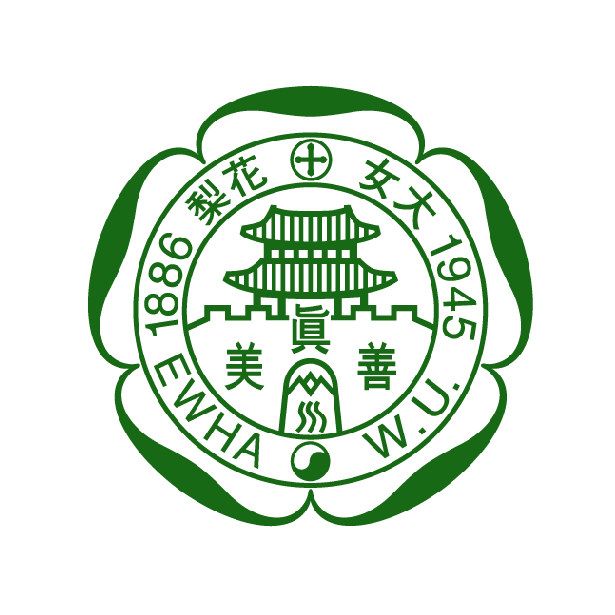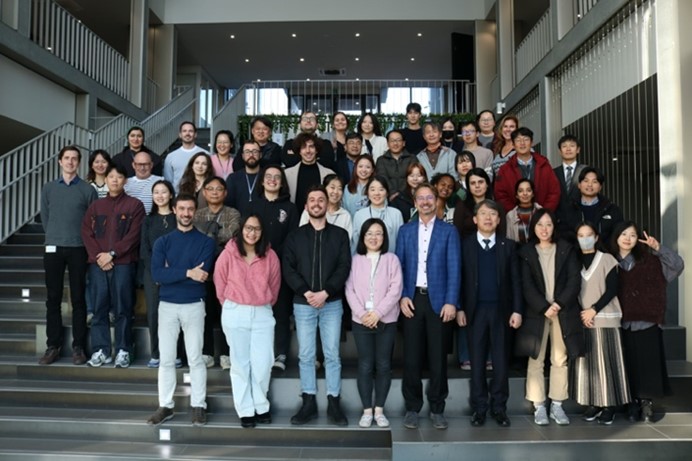
Overview of Quantum Technology Research
In the era of Quantum technology, Ewha Womans University has pursued development of quantum physics and technologies, utilizing from atomic qubits to nanoscale devices. At Ewha, a trapped ion quantum computing research center has established in March/2022, developing a 10 ion qubit quantum computer and recently successfully trapped more than 5 qubits, working on high-fidelity quantum entanglement. The IBS Center for Quantum Nanoscience (QNS) was established in 2017 under director Andreas Heinrich’s scientific leadership, with a team over 70 domestic and international members, it has become the global leader in the field of quantum-coherent nanoscience of atoms and molecules on surfaces.
Professors and Laboratories
 Department of Physics / professor Taeyeong Choi
Department of Physics / professor Taeyeong Choi
Trapped ion-based Quantum Computer, Cryogenic ion trap, Trapped ion-based scanning probe microscopy, Electron spin resonance-scanning probe.
최태영 교수님 < TRAPPED ION QUANTUM COMPUTING CENTER >
Homepage ≫ https://sites.google.com/view/tiqcl
Overall research theme : We are an experimental physics group building a Trapped Ion-based Quantum Computer. Quantum computer has been theoretically known to calculate specific tasks exponentially faster than conventional computers and solve problems that might not be solvable using conventional computers. There have been various physical platforms to construct the Quantum Computer. Among these, we use trapped ion quantum bits (qubits) to experimentally build the practical Quantum computer. Trapped ions in electromagnetic forces under ultrahigh vacuum are well isolated from their environment, enabling special field-insensitive energy states to achieve the longest coherence times among candidate systems. In addition, the electronic states of the trapped ions can be initialized and measured with high accuracy by using a coherent light source (laser). With these advantages, we are working on performing high-fidelity quantum logic gates – quantum superposition and quantum entanglement which are basis for universal quantum computation.
IBS Center for Quantum Nanoscience at Ewha Womans University (QNS)
Homepage ≫ Center for Quantum Nanoscience (qns.science)

Director Andreas Heinrich , professor Fabio Donati and the QNS team pictured with IBS President Do Young NOH
Quantum computation with atoms and molecules on surfaces, quantum sensing, quantum chemistry, quantum communication, spins on surfaces, Single-atom magnets and rare-earth spins on a surface, exploration of the quantum world
QNS is a world leader in quantum nanoscience with breakthroughs including the first Korean qubit (https://doi.org/10.1126/science.ade5050) and a revolutionary quantum sensor (https://doi.org/10.1038/s41565-024-01724-z). QNS has over 70 employees, 50% of whom are Korean and 50% international, and 60% of our researchers are female. We are a multidisciplinary center with exceptional levels of collaboration among our physics, chemistry, and theory teams specializing in quantum-coherent control of surface spins. The field gained momentum with the invention of ESR-STM (electron spin resonance combined with scanning tunneling microscopy) by QNS director Heinrich. ESR is based on the coherent control of the superposition of spin states. Therefore, its combination with STM puts ESR-STM at the core of quantum-coherent nanoscience. QNS was the first team to develop pulsed ESR with STM (Science 2019), which allows a direct measure of the quantum coherence time of the spin in a spin echo measurement.
Leveraging the director’s expertise and resources from IBS and Ewha, has positioned Korea as a world leader in the emerging field of quantum information science.

